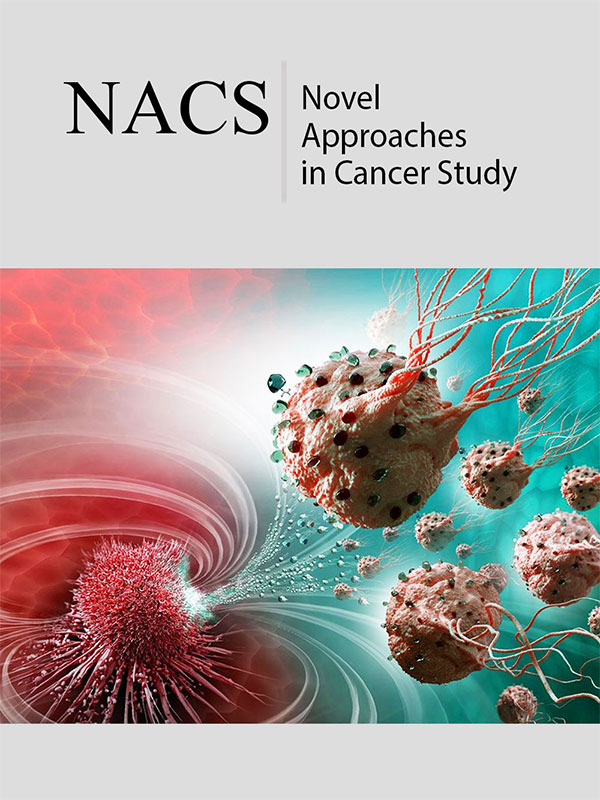- Submissions

Abstract
Novel Approaches in Cancer Study
Repurposing of Anti-diabetic Drug in Cancer Prevention
-
Open or CloseChandreyee Datta# Payel Das # and Ashish Bhattacharjee*
Department of Biotechnology, National Institute of Technology, Durgapur-713209, West Bengal, India
#These authors contributed equally to this manuscript.
*Corresponding author:Ashish Bhattacharjee, Department of Biotechnology, National Institute of Technology, Durgapur-713209, West Bengal, India
Submission: April 20, 2020 Published: June 04, 2020

ISSN:2637-773XVolume4 Issue5
Abstract
Metformin is basically a biguanide derivative widely prescribed worldwide in the treatment of type II diabetes (T2D) and Polycystic Ovarian Diseases. Diabetes is a very common disease and can increase the chance occurrence of various types of cancers such as colon, rectum, pancreas and liver cancer compared to non-diabetic patients. Recently, epidemiological studies and meta analysis have demonstrated that T2D patients have comparatively lower incidence of tumor development than healthy individuals. Moreover, the patients diagnosed with cancer have lower mortality rate when treated with metformin, indicating a likely association between metformin and tumorigenesis. So far, metformin has been used in cancer prevention with reduced risk as an adjuvant or neoadjuvent drug. There are evidences from studies in diabetic cohort and laboratory studies that the action of metformin depends on a balance between concentration and exposure, which also depends crucially on cell and tissue specific pharmacological factors. In-vivo and in-vitro studies have revealed that metformin has a direct antitumor effect-which can depress tumor proliferation and induce apoptosis, autophagy and cell cycle arrest. Yet, there are several missing links regarding the role of drug transporters and drug-drug interactions, as well as the expression levels of transporters in normal versus tumor tissues which may affect patient exposure and dosing when metformin is used in cancer prevention. In this review, we mainly highlight different mechanistic pathways of anti cancerous outcome and new molecular target of metformin in cancer.
Keywords: Metformin; Phenformin; Biguanides; Breast cancer; Prostrate cancer; Lung (NSCLC) cancer, Diabetes
Abbreviations: T2D: Type II Diabetes; AMPK: Adenosine Monophosphate Activated Kinase; ATM: Ataxia Telengiectasis Mutated; LKB1: Liver Kinase B1; OS: Overall Survival; PFS: Progression Free Survival; NSCLC: Non-Small Cell Lung Cancer Cells
 a Creative Commons Attribution 4.0 International License. Based on a work at www.crimsonpublishers.com.
Best viewed in
a Creative Commons Attribution 4.0 International License. Based on a work at www.crimsonpublishers.com.
Best viewed in 







.jpg)






























 Editorial Board Registrations
Editorial Board Registrations Submit your Article
Submit your Article Refer a Friend
Refer a Friend Advertise With Us
Advertise With Us
.jpg)






.jpg)














.bmp)
.jpg)
.png)
.jpg)










.jpg)






.png)

.png)



.png)






